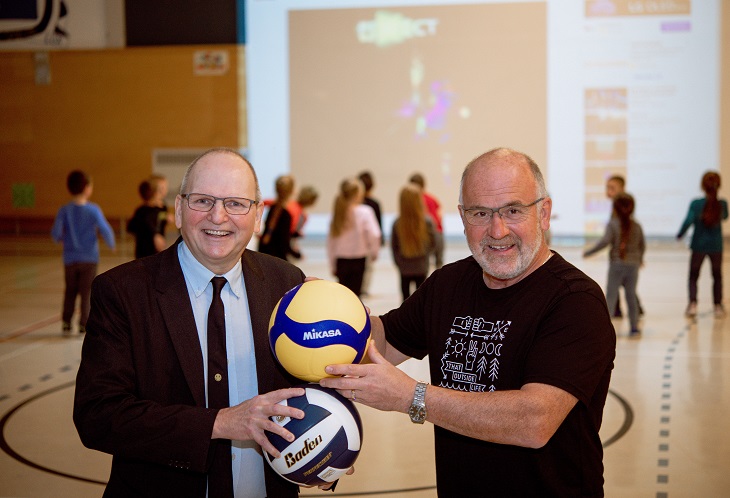
BLANC-SABLON, Que. — Telus announced today the company, its Telus Friendly Future Foundation and a team of partners have donated $350,000 to distribute 10 Lü systems featuring immersive audiovisual technology to schools in Quebec’s Lower North Shore via the Fondation Docteur Camille-Marcoux.
“The 600 students in these isolated communities and Innu territories can now learn, explore, and be active, thanks to a virtual environment that connects them with one another and to activities that develop their social, emotional, physical, and intellectual skills,” reads a press release.
This donation, which includes $100,000 from Telus and $100,000 from the Telus Friendly Future Foundation, follows the completion earlier this year of Telus’s 4G LTE network expansion to 14 isolated Lower North Shore communities, which helped to connect 2,000 households to high-speed Internet and mobile phone services for the first time, according to the press release.
“With today’s announcement, we’re linking our long-standing commitment to deploying our networks to Québec residents no matter where they live, with our goal to build a better future for communities and youth so they can achieve their full potential,” said Marie-Christine D’Amours, vice-president of consumer solutions and customer experience for Telus in Quebec, in the press release.
“We’re so grateful for this donation from both Telus and the Telus Friendly Future Foundation,” said Vincent Joncas (above, right), president of the Fondation Docteur Camille-Marcoux.
“Since the arrival of high-speed Internet, teaching has become easier and more engaging, and our youth now have the same advantages as other students. From Blanc-Sablon to Kegaska, Lü systems will transform our classrooms into interactive spaces where students can dance to great music, practise their high-jumping, and explore the infinite spaces of the universe and the depths of the ocean as though they are actually there. It’s opened up a whole new world of information and possibilities,” Joncas said.
Lü systems “use virtual learning spaces built around a giant projection wall, a 3D camera, and light and sound systems,” explains the press release.
“Through the power of high-speed Internet, youth in the isolated villages of the Lower North Shore will be connected to the Lü virtual community, and will interact with students in other classrooms around the world. The Lü environments will also be accessible to residents in all remote communities, creating a circuit of connections between younger and older generations, and diverse cultures all across Québec.”
In addition to Telus and the Telus Friendly Future Foundation, six partners contributed to the project, including IT2go, the Centre de services scolaire du Littoral, the Institut Tshakapesh, and corporate partners WesTower Communications, Nokia and Madysta.
“The arrival of high-speed Internet has provided teachers and students with additional tools to enhance the educational experience in Lower North Shore schools. Educational platforms that were previously inaccessible are now being used on a daily basis by our students,” said Phil Joycey (above, left), administrator of the Centre de services scolaire du Littoral, the region’s school service centre.
“We’re taking education to new levels with the introduction of interactive tools such as Lü systems, which are now used in every school gymnasium in the area covered by the school service centre.”
For more, please click here.
Photo supplied by Telus.


